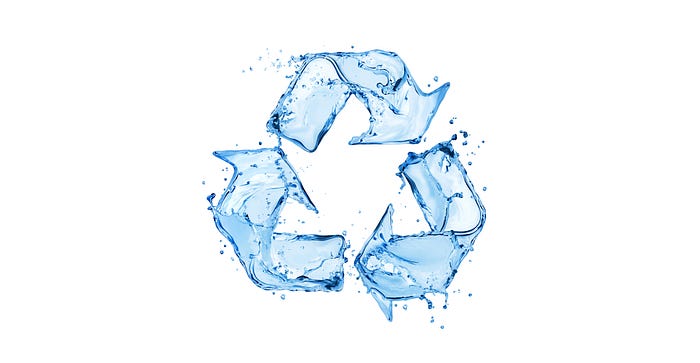Unlocking the Potential of Wastewater: A Sustainable Resource
Written on
The Importance of Water in Our Lives
Water is vital for all living beings, and its scarcity poses serious challenges, especially during heat waves when freshwater supplies dwindle. Recognized as a human right by the United Nations in 2010, the availability of clean water is essential for survival. Unfortunately, poor management of water resources over the past century has led to increased water scarcity, driven by industrial overuse, rapid population growth, and pollution.
To counteract these issues, the United Nations has established Sustainable Development Goals (SDGs), particularly focusing on clean water and sanitation. These objectives aim to ensure universal access to safe water by 2030, highlighting the need for efficient water usage.
The Role of Water Reuse
A key strategy for improving water efficiency is the reuse of wastewater. During a recent Water and Waste Management Conference in Thailand, I learned from Vikas Brahmavar that the terminology often conflates "wastewater" with "wasted water." While wasted water implies discarding water after use, wastewater possesses significant potential for reuse.
Astoundingly, approximately 80% of wastewater is released untreated. This issue is particularly pressing in water-scarce regions, where reusing wastewater not only contributes to the SDG of clean water but also alleviates water scarcity.
Minimizing Dependency on Natural Water Sources
One of the primary benefits of wastewater is its capacity to reduce our reliance on natural water sources, such as lakes and rivers. Given the increasing frequency of droughts, purifying wastewater for various applications—ranging from agricultural irrigation to industrial use—can help preserve clean water for essential human needs.
However, it’s crucial to recognize that even treated wastewater may still harbor pollutants. After purification, some contaminants—such as harmful microorganisms, heavy metals, and micropollutants—can remain, posing health risks to humans and ecosystems.
Using Sewage Sludge as a Resource
Another valuable aspect of wastewater is the potential of sewage sludge, the residual material left after purification. Instead of discarding this sludge, which in the EU alone amounted to over 10 million tons in 2015, we can harness it for various beneficial uses. For instance, it can be converted into energy or organic fertilizers rich in essential nutrients like nitrogen and phosphorus.
This approach not only mitigates environmental impact but also provides alternatives to expensive commercial fertilizers. Furthermore, the proteins in sewage sludge can be transformed into products for animal feed, medicine, and cosmetics.
Recovering Energy from Wastewater
The third compelling reason to view wastewater as a resource is the energy recovery potential it offers. Remarkably, the energy contained in wastewater exceeds the energy required for its treatment by a factor of twelve. This energy can be harnessed in multiple forms, such as thermal, potential, and chemical energy, leading to applications like biodiesel production and electricity generation through hydropower.
Conclusion: Embracing Wastewater as a Resource
In summary, wastewater is not merely a byproduct but a valuable resource that can help reduce reliance on natural water sources, utilize sewage sludge effectively, and recover energy.
Practical Steps for Water Conservation
To contribute to wastewater reuse and minimize pollution, consider the following actions:
- Collecting water while waiting for the shower to warm up for plants
- Reusing bathwater for toilet flushing
- Running full loads in dishwashers and washing machines
- Turning off taps while brushing teeth or soaping up in the shower
- Taking shorter showers and reducing shower frequency
- Capturing sink water for dishwashing
- Installing water-saving fixtures
- Properly disposing of chemicals and medications
If you have additional ideas on how we can collectively enhance water conservation, please share them in the comments!
Chapter 1: Understanding Wastewater's Value
The first video discusses the importance of considering wastewater management and its potential benefits in addressing water issues.
Chapter 2: Solid Waste Disposal and Its Impact
The second video explores solid waste disposal, emphasizing its significance within the broader context of environmental management.
